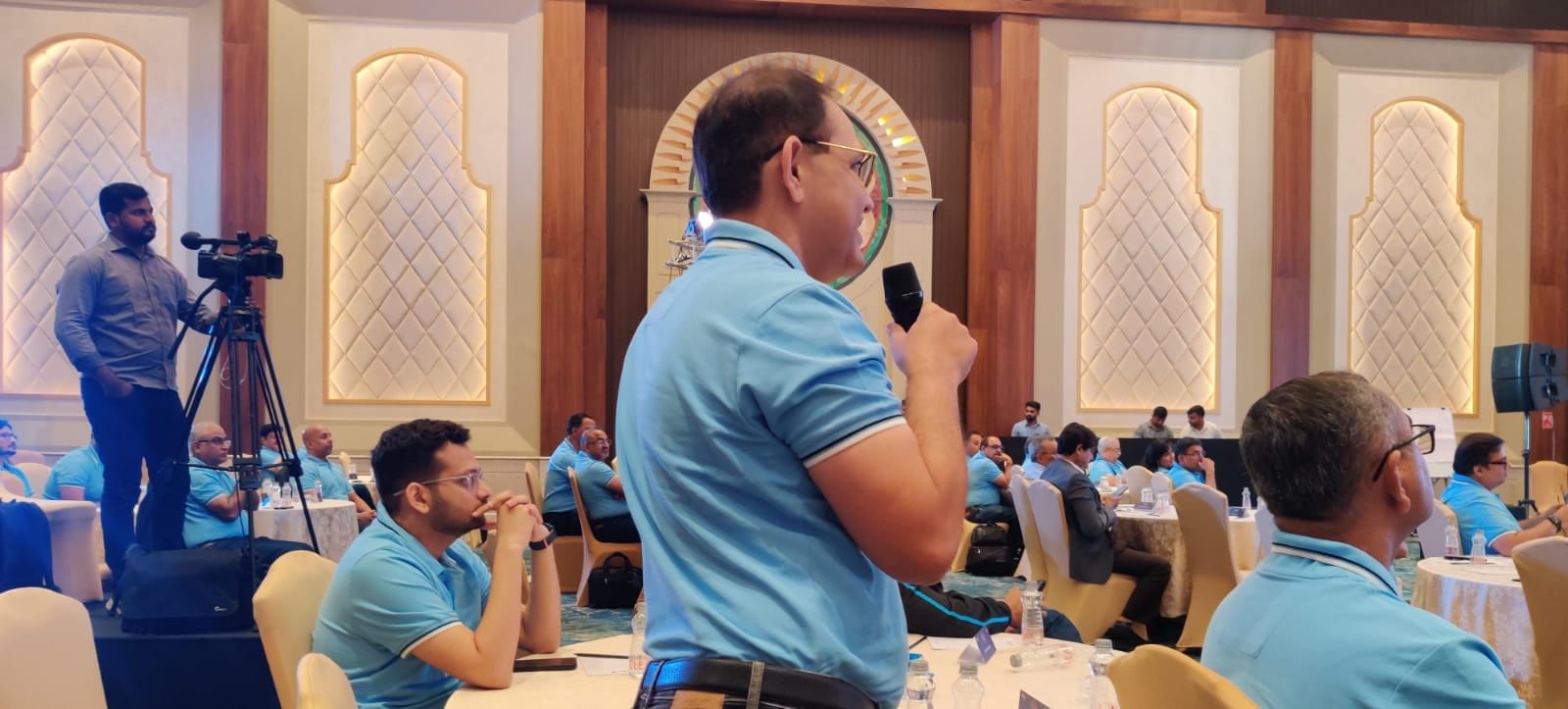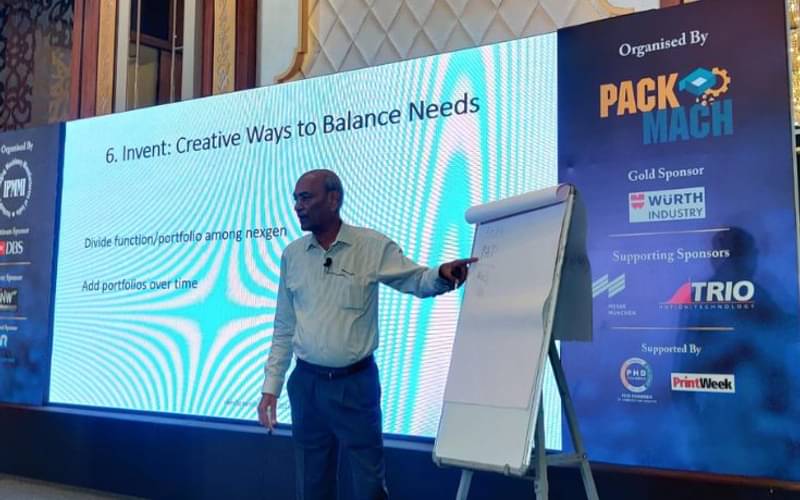VK Murti's mantra about succession planning in a family business
On 4 August, the who’s who of packaging machine manufacturing were present at the Envision conference. VK Murti's presentation about succession planning on day two provided valuable insight into the key issues and emotions which affect family businesses across India.
06 Aug 2024 | By Disha Chakraborty
At the outset, VK Murti alluded to the McKinsey August 2024 report . The report says, In India, family-owned businesses (FOBs) contribute more than 75% of national GDP, and this is likely to rise to 80 to 85 % by 2047.
Which is why, Murti's presentation which focused on the complexities of succession planning, particularly for family-owned businesses (FOBs) was an hour long masterclass. He explained that succession planning is an ongoing process and emphasised that each family business is unique, requiring a tailored approach to ensure a smooth transition of leadership. His one tip was: to start early and not wait till the next-gen is in the early twenties.
He extolled the IPMMI members to take pride in the family business. He said, in this age of start-ups and unicorns, as well as brands and MNCs, the one or two gala SME companies are the "hidden champions" of the Indian industry. He said, FOBs reported around 2.3 percent higher revenue growth than businesses that are not family-owned.
A crucial point in Murti's presentation was the need to treat succession planning as a critical task, even though it may not seem urgent. He said, “If it is a family member, then how do you prepare that family member for that role.” He said “Succession is difficult to discuss.” This involves personal identity, family dynamics, and potential lifestyle changes.
Murti posed the question, "Do you want your business to die with you?". He cited umpteen examples among Indian businesses and extolled the members to ensure family members earn their presence in the company; and it is not an emotional choice.
He outlined a structured approach to succession planning, beginning with understanding the aspirations of individual family members. He encouraged families to 'envision' future scenarios, considering the interests of the next generation and how they might contribute to the business. This understanding helps in managing expectations and defining priorities. Murti raised a pertinent point, such as whether the family wants to work together, what their goals are, and whether the business should remain family-owned or transition to professional management.

During the Q&A session, delegates were keen to know how to prepare the next generation in the family and how to create transition plan for the next generation
He then talked about the importance of considering the business's needs separately from family aspirations. This approach ensures that decisions are made transparently and thoughtfully, balancing family desires with business requirements. Murti also stressed the need for a clear selection process, including criteria for choosing the successor and the potential involvement of external advisors.
Further exploring ways to balance the needs of the business and family, he suggested dividing responsibilities among the next generation and gradually adding roles, recognising that families often grow faster than businesses. He recommended developing the successor's competence through external and internal experiences, deliberate practice, and ongoing education.
The final section of Murti's presentation addressed the role of the current leader. He raised important questions about how to transfer control, ensure financial security, and keep recognition. Murti recommended a gradual approach where the current leader hands over management responsibilities while staying available and mentoring the new leader. This method helps gain employee support for the new leadership and allows the outgoing leader to contribute their expertise.
Murti concluded with a quote from Peter Drucker: "The final test of greatness in a CEO is how well he chooses a successor and whether he can step aside and let his successor run the company." This quote captures Murti's key point—that effective succession planning isn’t just about picking the right successor; it's also about the current leader’s willingness to step back and let the new leader take charge.
After the VK Murti masterclass, there were more than ten questions from the IPMMI delegates which focussed on operational challenges while identifying a successor; the effectiveness of the transition to the next generation; diversification of the portfolio; how to groom talent and boost their capabilities, plus create a professional culture in a family business.
During the Q&A session, delegates wanted to know more about how to choose a successor from within the family. Murti said, respect has to be earned and sometimes the fault in family businesses is, family ties are preferred to the business quotient.


